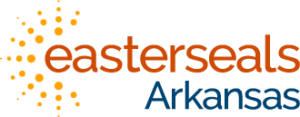
Affecting about 206,000 Americans, Down syndrome is the most common chromosomal condition. Although it can lead to higher risks of congenital cardiac issues, autoimmune diseases, and Alzheimer’s disease, the life expectancy of those with this condition has increased from 25 years in 1983 to 60 years in 2020.
And now for the first time, researchers have developed clinical guidelines for primary care for adults with Down syndrome, leading to a higher quality of care for this population.
Background
Driven by the lack of clinical research in several of the areas addressed by the guidelines, research for this life-changing development has been years in the making. Sources report that experts from eight of America’s largest adult Down syndrome medical centers spent four years examining research on the treatment of those with the chromosomal disorder.
The team focused on how Down syndrome intersected with treatment of mental health, dementia, diabetes, cardiovascular disease, obesity, osteoporosis, atlantoaxial instability, thyroid disease, and celiac disease.
Results and Recommendations
The result, published in the Journal of the American Medical Association (JAMA), is a paper with 14 recommendations and four statements of good practice for clinicians treating those with Down syndrome. The team’s strongest recommendation is for everyone with Down syndrome to be screened for Alzheimer’s disease starting at 40 years old.
Two recommendations urge earlier and more frequent diabetes screening. Four other recommendations — managing risk factors for cardiovascular disease and stroke prevention, screening for obesity, and evaluation for secondary causes of osteoporosis — paralleled guidance that’s already in place for those without Down syndrome.
“We are so pleased that the quality of our guideline rose to the occasion of being published in JAMA, and we are deeply grateful to our families and self-advocates for pushing us to work on this difficult project,” says Michelle Sie Whitten, president and CEO of the Global Down Syndrome Foundation, or GLOBAL, which spearheaded the effort. “Now we can focus on collaborating with other Down syndrome and disability organizations as well as medical institutions to ensure clinicians are following our Global Guideline and measuring outcomes.”
For more information
Every person with disabilities deserves care, love, and support. We understand this, and we’re determined to help your adult child live a full, independent lifestyle with ongoing support and community interaction.
Contact us at (501) 227-3600 to get involved with Easterseals Arkansas or to learn more about how we can help you and your loved one today.
